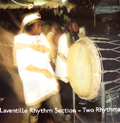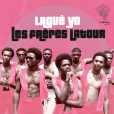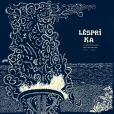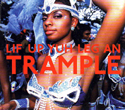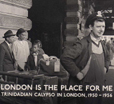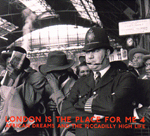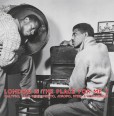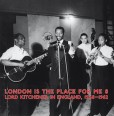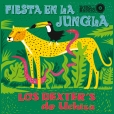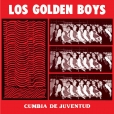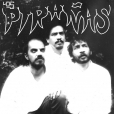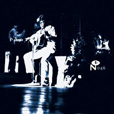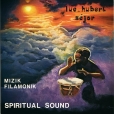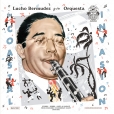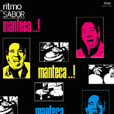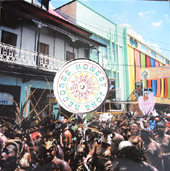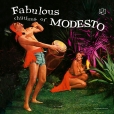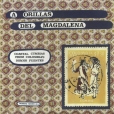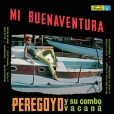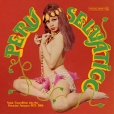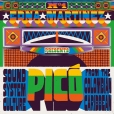Your basket is empty

Thirteen and twenty-two minute slices of carnival thunder and lightning from the hill above Port Of Spain in Trinidad. Lengths of steel, assorted bits of metal, African drums. An Honest Jon’s recording.
Classic, jazzy, funky zouk, from Guadeloupe.
‘a terrific soca compilation… a vital contemporary follow-up to London Is the Place for Me’, Village Voice; ‘*****, Compilation Of The Month’, Touch; ‘chaotic and compelling… an ace selection’, Time Out.
London Is The Place For Me
2: Calypso And Kwela, Highlife And Jazz From Young Black London
Honest Jon's Records
‘superlative’, Mojo; ‘sensational’, The Observer; ‘hugely evocative and poignant’, Daily Telegraph; ‘*****’ The Times, Metro; ‘sheer joy from start to finish’, Sunday Telegraph.
‘an exquisitely poignant, evocative record’, Daily Telegraph; ‘wonderful… album of the year’, Sunday Times; ‘simply a classic album. Music by the people, for the people,’ The Voice.
‘*****’, The Times, Independent On Sunday, Daily Telegraph, What’s On, Evening Standard, The Independent. ‘Marvellous pop — catchy, fun, young, effortless’, The Times; ‘one of the delights of the age’, Songlines.
Still deeper forays into the musical landscape of the Windrush generation.
A dazzling range of calypso, mento, joropo, steelband, palm-wine and r’n'b. Expert revivals of stringband music, from way back, alongside proto-Afro-funk.
An uproarious selection of songs about the H-Bomb and modern phones, prostitution and Haile Selassie, mid-life crisis and the London Underground, racism and solidarity, the Highway Code and a 100% West Indian Royal Wedding.
For example some frantic British-Guianan joropo music-hall about Eatwell Brown from Clapham, who starts out biting off a piece of his mother-in-law’s face at a party, then devours everything in his path… a chunk of Brixton Prison, a Union Jack, a policeman’s uniform. Or Marie Bryant — collaborator of Lester Young and Duke Ellington — taking time off from skewering the South African PM Daniel Malan at her West End revue, to contribute some arch, swinging filth about uber-genitalia.
Superior sound, courtesy of Abbey Road, D&M and Pallas; lovely gatefold sleeve; full-size booklet, with full notes, and fabulous previously-unseen photographs, including a set from the family archive of Russ Henderson (who led the first, impromptu Notting Hill Carnival march, in 1966).
The genius of Lord Kitchener has been the mainstay of our series.
In this volume devoted to his post-war London recordings, Kitch plays his many roles with signature aplomb and poised subtlety.
First there is the hooligan chantwell, up for anything in the hurly-burly of carnival proper; and then the casual reporter, firing off postcards to Trinidad about taxis, flashy booze, fast women and football in Manchester, with homesickness and grievance nestled just behind the optimism, pride and tentative senses of belonging.
There is the bearer of news from home, in detailed accounts of murders, tales of stupid local coppers, and reminiscences about food and particular mango trees; the political thinker, considering racism and Africa; and the diarist, with his vivid tales of infidelity, and disclosure of the break-up of his marriage, and his desire to get away.
One foot in the UK, the other in Trinidad; but the man himself somewhere in-between. Kitch In The Jungle, nobody around. A ‘diasporic explorer’; a key twentieth-century witness, alongside such hallowed figures as Samuel Selvon and Edward Kamau Braithwaite.
Though in frustration Kitch would sometimes take over double-bass duties himself, the musicianship of Rupert Nurse, Fitzroy Coleman and co is top-notch. The original glorious sound is down to Denys Preston, recording for Melodisc, often at Abbey Road Studios (where we transferred and restored the 78s compiled here).
Presented in a lovely gatefold sleeve, with a full-size booklet containing superb, specially-commissioned sleevenotes by Kitch biographer Anthony Joseph, and fabulous, previously-unseen photographs.
Consider it a Nicaraguan take on Herbie’s Mwandishi — this psychedelic swirl of Latin jazz and pan-American funk, marrying Lovo’s out guitarism with the fine percussion-work of Jose ‘Chepito’ Areas, from Santana.
Luminous, intensely committed, magical spirit music from late-seventies Guadeloupe, rooted in brilliant gokwa drumming.
It opens with two instrumentals — Penn é Plézi was the theme tune for Radio Guadeloupe’s funeral notices from 1980 to 1992 — before a call for cultural realignment. Then a three-part suite: Primyé Voyaj evokes the appalling tribulation of Africans deported as slaves to Guadeloupe; Dézyèm Voyaj addresses the Bumidom programme driving young Guadeloupeans towards the mirage of prosperity in sixties France; Twazyèm Voyaj closes the cycle with the emigrants’ return from Europe.
Deep, fabulous music.
Brassy, infectious Afro-Amerindian cumbia, porro, gaita, and mapalé from Colombia’s Caribbean coast, which injected a modern, jazzy, big-band sound into regional Afro-Colombian traditions, and took the country by storm.
The Orquesta Del Caribe, recorded in Medellin, 1946-1961: a legs-eleven blaring trumpets, soaring saxophones, meandering clarinets, rattling and pounding percussion, plus singer Matilde Diaz, led by the maestro Bermudez, widely considered Colombia’s most influential composer of all time.
The business — pure, heavy, deep Afro Cuban funk grooves. 1970s bass-driven percussion delirium. Lazaro Pla aka Manteca alongside Nelson ‘El Flaco’ Pardon on timbales and Carlos Potato Valdes on congas.
Tearaway soca from the studio of Darryl Braxton, mixing it up with ragga and rave vibes.
‘A disciple of mambo innovator Perez Prado, the Cuban-born Modesto Duran was a pivotal figure in Latin dance music’s transitionary mid-century period. His gentle slaps can be heard across dozens of 1950s mega-sellers, from Esquivel to Belafonte, Eartha Kitt to Lena Horne. On his 1960 solo debut, Duran gathers a who’s who of conga-men, including Mongo Santamaría, Willie Bobo, and Juan Cheda, delivering a cinematic and percussive melange of afro-cuban, cha cha, and exotic jazz styles.’
A compilation inspired by the fabulous sound-system, record-collecting culture of the northern cities of Cartagena and Barranquilla, where ricocheting champeta, highlife, soukous, mbaqanga, zouk, soca, and cumbia blare through stacks of hand-painted speakers, in street-corner, neighbourhood bailes.
